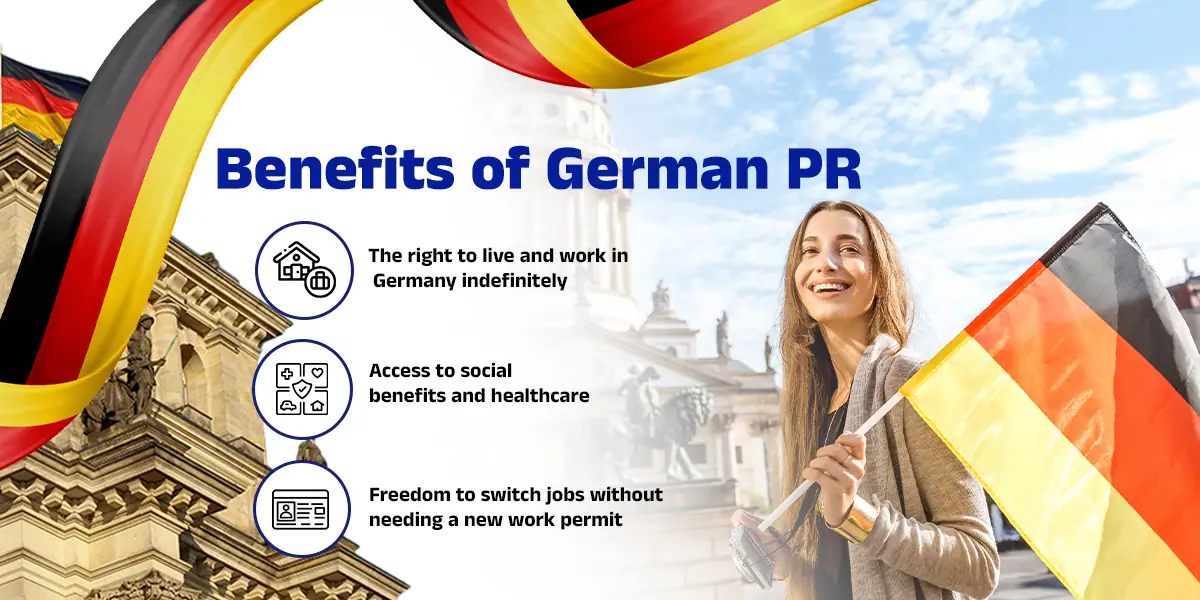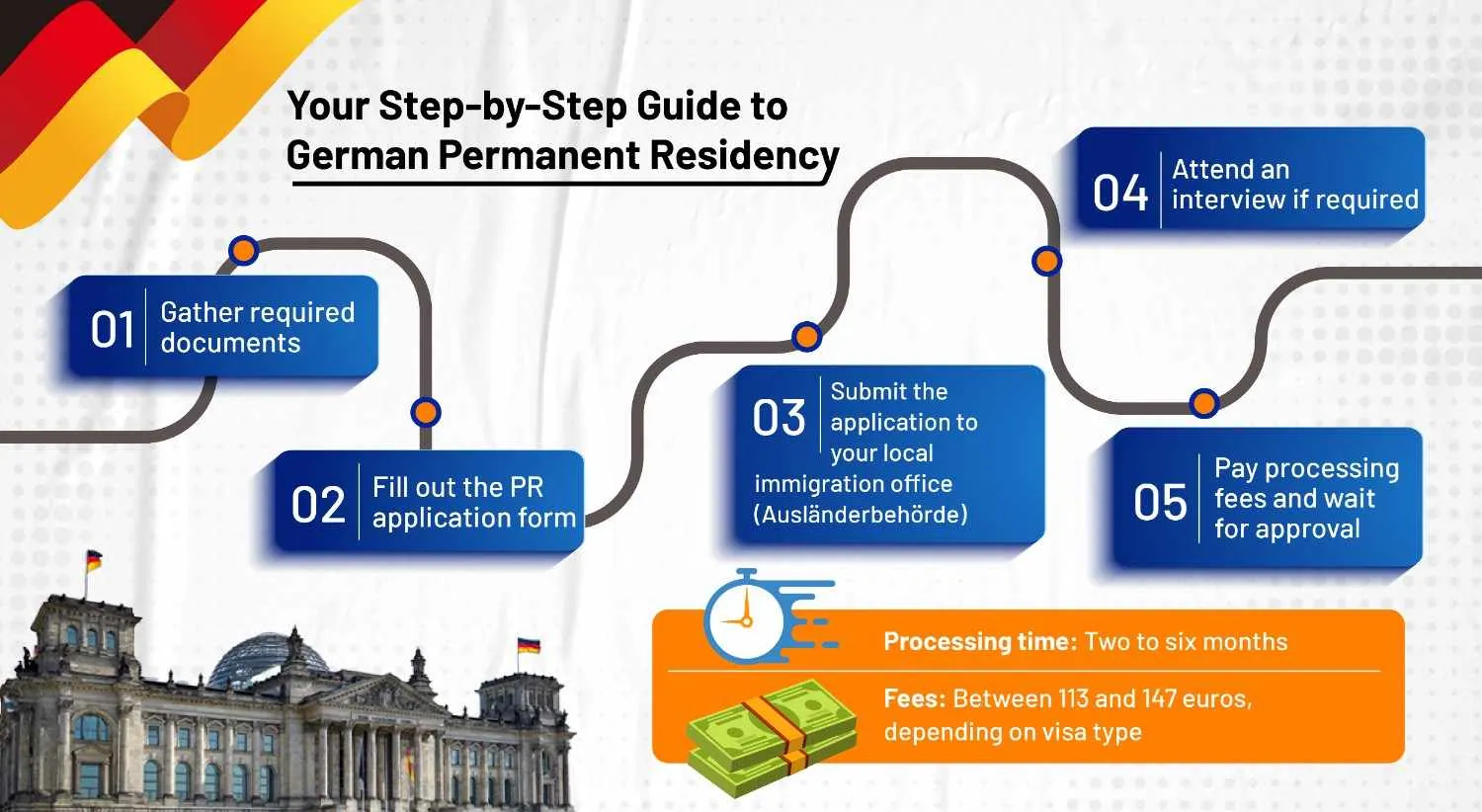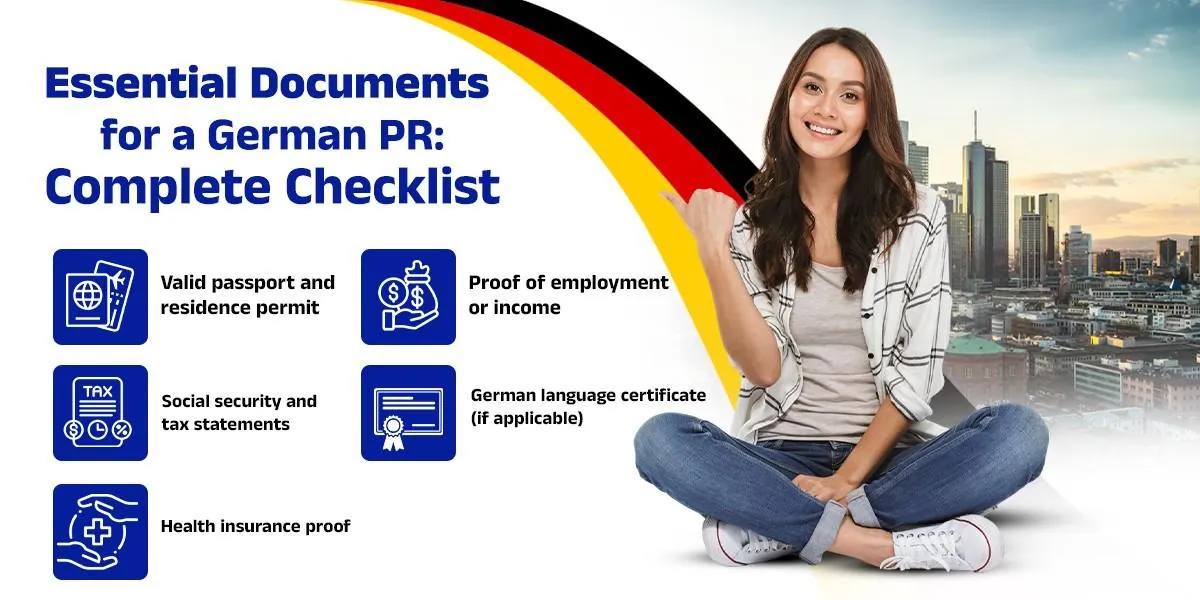
Your Step-by-Step Guide to German Permanent Residency

A German PR (Permanent Residence) permit, also known as Niederlassungserlaubnis, allows a person to live and work in Germany on a permanent basis. A German PR need not be renewed every year unlike temporary permits, offering stability to integrate into German society.
A permanent residency has many benefits such as better employment opportunities, residency rights within Germany. It should be noted that permanent residency does not equate to citizenship. A German citizen can participate in elections and can possess a passport. A permanent resident cannot do all of this.
However it is a path to citizenship, in fact an important one that requires a lot of steps to be followed. But for now, this guide will provide steps to get a German PR.
What are the benefits of German PR?
To be fair, getting a German PR is a long step if not an arduous one. But the benefits that it can bring is immense. It is the main reason why there are millions of applicants for a German PR every year.

The benefits of a German PR are as follows:
- Unlimited work opportunities will be available as German PR holders can take up any employment in any profession without any restriction.
- Family reunification is possible with a German PR. The process for family reunification will be far more streamlined in comparison to those who do not possess a PR.
- Social security benefits like access to healthcare, unemployment aid and pension will be available for German PR holders.
- A permanent residency will be the first step to the pathway of citizenship. Usually citizenship is granted a few years after getting a PR.
- It offers stability and peace of mind as you need not renew your permit every year.
Now that the benefits are highlighted, let’s have a look at who is eligible for a German PR.
Who is eligible for a German PR?
To become eligible for a German PR, an applicant must have worked in Germany for at least 2 years upon graduating. The nature of work must closely match with that of your academic qualification.
For students who want to apply for a German PR, they must hold a residence permit and should be making a contribution to the pension scheme.
Additional eligibility requirements are as follows:
- Proof of financial stability. You must demonstrate that you are capable of earning to support yourself financially.
- You must show that your residence is adequate to accommodate your family if you seek family reunification.
- Applicants must have B1 proficiency in the German language.
- A valid proof of employment or proof of admission in a German university depending on the scenario.
Different Types of German PR
There are several types of German PR. Each PR is different depending on the applicant and the purpose for which they have applied for.
The types of German PR are:
- Standard Permanent Settlement Permit is available for those who have been living in Germany for at least five years. Holders of this permit can live and work in Germany only with this permit.
- EU Blue Card which is granted to highly skilled professionals who are fluent in German and have lived in Germany for at least 21 months.
- Permanent Residency for Students are granted for graduates from a German University who have lived in and worked in Germany for 2 years.
- Permanent Residency for Family Members are granted for eligible family members of EU Blue card holders. German permanent residents can also apply for a German family reunion visa.
- Permanent Residency for Self-Employed individuals are granted for individuals who are self-employed in Germany.
How to apply for a PR in Germany
Applying for a Permanent Residence Permit (PR) in Germany allows you to live and work in the country indefinitely. However, before applying, ensure you meet key requirements such as:
- Number of years you have lived in Germany.
- The type of PR permit you qualify for
- Language skills and contributions to the social security system
Fees & Processing Time for German PR
The application fees vary based on the residence type:
- General PR application: Around €113
- EU Blue Card holders: Around €147
- Self-employed individuals: Around €124
The processing time can range from 2 to 6 months, depending on your application and the workload of immigration offices.

Essential Documents for a German PR: Complete Checklist
You must possess a complete checklist of documents when applying for a German PR. Should you miss more or one of the documents your application process may be delayed if not outrightly rejected.

The complete list of documents are as follows:
- Completed application form
- Proof of current and paid health insurance with at least 60 months of social security contributions
- Valid passport
- Recognized certificate of knowledge of the German language (at least B1 level)
- 1 x biometric photo
- Certificate of German university degree
- Marriage Certificate (if applying for a fast-tracked PR due to being married to a German citizen)
- Proof of financial security (bank statements for employed individuals and tax returns for self-employed)
- A letter from your employer or university
- Proof of accommodation and registration
- Professional license (if applying for a fast-tracked PR due to being highly skilled in a field).
FAQs
FAQs about German Permanent Residence
Skilled workers: 5 years
Graduates from German universities: 2 years
Self-employed individuals: 3 years (with proven business success)
EU Blue Card holders: Around €147
Self-employed individuals: Around €124

